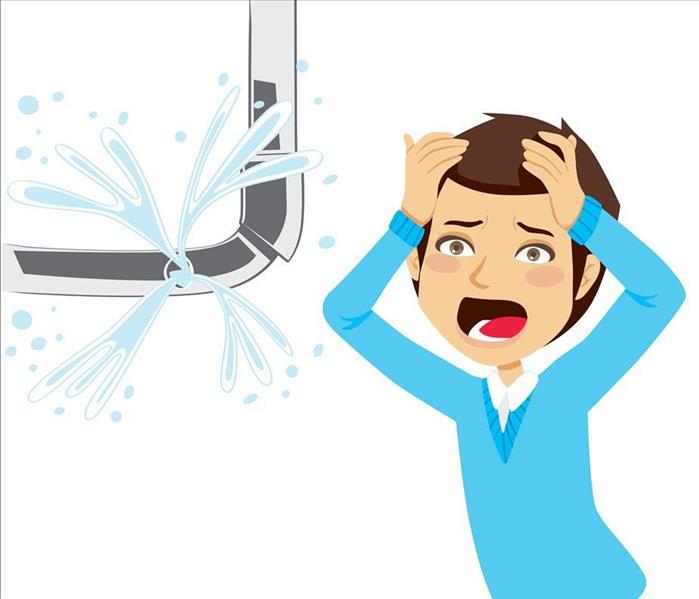How To Avoid Frozen Pipes
11/15/2021 (Permalink)
Frozen pipes can cause a lot of damage to your home if they burst. In addition to having to repair or replace the pipe itself, you must also contend with the damage to the structure around it caused by the surge of water it releases. To protect your home in Ogden, UT, from extensive water damage caused by a frozen pipe, take the following precautions.
6 Tips to Prevent Frozen Pipes
Proper Insulation
You probably pay close attention to general insulation for your home, but what about insulating the pipes themselves? Even if you have a layer of protection from the extreme winter cold, it may not be enough to protect your home from a pipe freeze. Add extra insulation to pipes located in specific areas:
- Attached to an outside faucet
- Along an external wall
- In the crawl space or attic
You can purchase heat tape or cables directly to vulnerable pipes. Most hardware stores have these items in stock. Be sure to follow the manufacturer's instructions carefully when applying them for optimal results.
Protection From Outside Air
No matter how well insulated your home is, pipes can still freeze if you have spaces where cold air can leak in. Check your windows and doorways for drafts during regular inspections, particularly right before the first freeze. Any appliances that vent to the outdoors are also common sites of leaks. Use caulk to seal any gaps you find.
Steady Stream
Sometimes a simple solution is the best one. A slow drip from your faucets can prevent frozen pipes. The steady stream of water keeps the pipes warm enough to stay intact. While you may worry that this wastes water and drives up your utility bill, think instead of how much money you save by not suffering the immense water loss caused by a broken pipe.
Warm Home
Keeping your home warm can also keep your pipes warm. Some homeowners lower the thermostat overnight when the family is bundled up in bed, but this can lead to water damage from a pipe burst. Set your thermostat at a consistent temperature throughout the day and night to keep pipes warm at all times.
Vacation Preparation
If you are not going to be at home for several days or weeks, you must protect your pipes so that you don't come home to a big mess. Set the thermostat no lower than 55 degrees so that the house stays warm. Turn off the water main. That way, if a pipe does break, there is nothing in it to flood your home. Ask a neighbor or a friend to check on your house occasionally while you're gone to make sure everything is as it should be.
Quick Response
Even if you take all of these precautions, a pipe may still freeze and release water. A fast response is key to minimizing the damage it leaves behind. Call your plumber to repair the pipe and water damage mitigation specialists to provide the cleanup.
Taking care of your pipes is important, particularly when it's cold outside. Know how to prevent frozen pipes and what to do if a break does occur.




 24/7 Emergency Service
24/7 Emergency Service
